Pixel 10 Pro XL vs Pixel 8 Pro: Similar but different
The Google Pixel 10 Pro XL is very similar to the Pixel 8 Pro. How similar? Read on to find out!
We may earn a commission if you make a purchase from the links on this page.

Intro
The Google Pixel 10 series is finally here! Google has officially announced its next flagship phones alongside the Pixel Watch 4 and two Pixel Buds models. For the second consecutive year we've got a Pro XL model, namely the Pixel 10 Pro XL.
This oversized Pixel Pro is competing with other big-screen rivals on the market, but it is also pretty close to the good old Pixel 8 Pro. How close? Today we're going to find out!
Should you upgrade if you already have the Pixel 8 Pro? Is the new Pixel 10 Pro XL better in every way? Is there a case to be made for getting the Pixel 8 Pro? We're going to answer these questions in the next paragraphs.
Google Pixel 10 Pro XL vs Google Pixel 8 Pro differences:
| Pixel 10 Pro XL | Pixel 8 Pro |
|---|---|
| Very similar to last year's XL model, flat sides with curved corners | Similar size and weight but old curved design |
| 6.8-inch Super Actua OLED display, 1-120Hz LTPO | Slightly smaller 6.7-inch display, 120Hz LTPO |
| 3,300 nits of peak brightness | Less peak brightness at 2400 nits |
| 50MP+48MP+48MP rear camera system | Same camera setup |
| New 42MP Dual PD selfie camera | 10.5MP selfie camera |
| Two generations newer Google Tensor G5 (3nm) with 16GB of RAM | Google Tensor G3 chipset (4nm), 12GB of RAM |
| 256GB, 512GB, 1TB storage variants | Base storage starts at 128GB, same otherwise |
| Advanced ultrasonic fingerprint scanner (under display) | Optical fingerprint scanner |
| Larger 5,200 mAh battery, potentially better battery life | 5,050 mAh battery |
| New magnetic Pixelsnap system (MagSafe-like) | No magnets here |
| 45W wired, 25W wireless (Qi 2.2 standard) | 30W wired, 23W wireless (with Pixel Stand) |
| Android 16, seven years software support | Android 14 (upgradable to Android 16), seven years software support |
Table of Contents:
Read more:
Design and Size
The change
The Pixel 8 series marked the last generation of curved Pixels with the Camera Bar design on the back. The Pixel 8 Pro in particular was the big boy in the family before Google decided to shrink the regular Pro and give us an XL model in the following year.
Well, now we're two generations into this new design, and the Pixel 10 Pro XL is flat and boxy, with a camera housing that doesn't span side-to-side, unlike the one on the Pixel 8 Pro. It's a different beast, and design-wise things are pretty subjective, so we won't be passing a judgement on that.
In terms of size, these two phones are pretty close. We're talking about fractions of a millimeter here and there. In the hand, though, the Pixel 8 Pro feels more comfortable thanks to its slightly curved back. It's worth noting that the Pixel 10 Pro XL is noticeably heavier, 20 grams to to be precise.
Well, now we're two generations into this new design, and the Pixel 10 Pro XL is flat and boxy, with a camera housing that doesn't span side-to-side, unlike the one on the Pixel 8 Pro. It's a different beast, and design-wise things are pretty subjective, so we won't be passing a judgement on that.
In terms of size, these two phones are pretty close. We're talking about fractions of a millimeter here and there. In the hand, though, the Pixel 8 Pro feels more comfortable thanks to its slightly curved back. It's worth noting that the Pixel 10 Pro XL is noticeably heavier, 20 grams to to be precise.
| Pixel 10 Pro XL | Pixel 8 Pro |
|---|---|
| Thickness 8.5 mm | Thickness 8.8 mm |
| Weight 232 grams | Weight 213 grams |
The building blocks of a modern smartphone have been largely the same in the past couple of years, and these two Pixels are no exception. We have the same glass and metal sandwich, consisting of an aluminum frame and tempered glass on the front and back. Actually, it's the exact same Gorilla Glass Victus 2 protecting the front and back of both phones, so no difference here.
| Pixel 10 Pro XL | Pixel 8 Pro |
|---|---|
| Obsidian | Obsidian |
| Porcelain | Porcelain |
| Moonstone | Bay |
| Jade | Mint |
In terms of colors, Google is offering some new shades with the Pixel 10 Pro XL, but the usual Obsidian and Porcelain color options are also there. This year we have Moonstone and Jade, the former being a shade of gray (we would call it graphite) and the latter—a trendy pastel green.
Display Differences
Bigger, brighter
After companies stopped trying to cram more and more pixels into smartphone screens, now we have another arms race—brightness. The Pixel 8 Pro and Pixel phones in general have always been at the top of the brightness charts, but there's a generational gap here.
The Pixel 8 Pro offers 2400 nits of peak brightness on paper (we measured 1449 at 100% APL). The screen size on the Pixel 8 Pro lands at 6.7 inches, and the resolution is 1344 x 2992, resulting in 489 PPI pixel density.
| Pixel 10 Pro XL | Pixel 8 Pro |
|---|---|
| Main screen 6.8 inches | Main screen 6.7 inches |
| Peak Brightness 3,300 nits | Peak Brightness 2,400 nits |
The Pixel 10 Pro XL, on the other hand, has a slightly bigger, 6.8-inch OLED. Along with the size difference, there's a difference in peak brightness. The cited brightness for the new Pixel 10 Pro XL is 3300 nits, let's see how it performs in our display tests.
The Pixel 10 Pro XL is better in every metric, it's brighter (actually, the brightest phone we've ever tested at 100% APL), it's color accuracy is better, and the minimum brightness is also lower. That said, the differences aren't that big, the Pixel 8 Pro still holds its ground in the display department, even two years after its debut.
Performance and Software
Tensor G5 enters the stage
The Pixel 10 series marks a big hardware shift for Google. The new in-house developed Tensor G5 chip is manufactured by TSMC. Google decided to switch the maker and the architecture, hoping for significant gains in performance and efficiency.
The Pixel 8 Pro, on the other hand, relies on the Tensor G3, a chip made in Samsung's foundries and based on the Exynos architecture. It's not the fastest out there, nor the most energy efficient (1720 and 4268 points in Geekbench 6's single- and multi-core tests, respectively), so the Pixel 10 Pro XL should have an advantage here.
Google says that the Tensor G5 is 34% faster than the previous generation in CPU tasks and 60% better when it comes to TPU (AI-related) tasks. Performance benchmarks after the table.
| Pixel 10 Pro XL | Pixel 8 Pro |
|---|---|
| Chipset Tensor G5 3nm | Chipset Tensor G3 4nm |
| Memory 16GB | Memory 12GB |
| Storage 256GB 512GB 1TB | Storage 128GB 256GB 512GB 1TB |
CPU Performance Benchmarks:
GPU Performance
Two generations make up for a big gap in performance, especially when we talk about Tensor silicon. The latest chip is much faster than the G3 inside the Pixel 8 Pro, albeit still lagging behind the industry leaders.
Camera
Same hardware, different tricks
PhoneArena Camera Score:
We know that AI and other post-processing algorithms do most of the heavy lifting in modern smartphone photography, and that's why we're not concerned about the camera situation of the Pixel 10 Pro XL.
On paper, the hardware looks identical to the one used two generations back, but with the new Tensor G5, Google has made big gains with the AI features, especially in photography.
There's an all-new feature called Camera Coach that can analyze the scene and offer you suggestions for the framing, lighting, etc. It's powered by Gemini, and if you're not a photography enthusiast, it might be a lifesaver for your photo endeavors.
On paper, the hardware looks identical to the one used two generations back, but with the new Tensor G5, Google has made big gains with the AI features, especially in photography.
There's an all-new feature called Camera Coach that can analyze the scene and offer you suggestions for the framing, lighting, etc. It's powered by Gemini, and if you're not a photography enthusiast, it might be a lifesaver for your photo endeavors.
| Pixel 10 Pro XL | Pixel 8 Pro |
|---|---|
| Main camera 50MP, f/1.68 | Main camera 50MP, f/1.68 |
| Ultrawide 48MP, f/1.7 | Ultrawide 48MP, f/2.0 |
| Telephoto 48MP, f/2.8 | Telephoto 48MP, f/2.8 |
| Selfie 42MP, f/2.2 | Selfie 10.5MP, f/2.2 |
There are other improvements in the Best Shot and Add Me features, but of course, we have to test all these in real-life scenarios. Actually, the selfie camera is all new, so technically, the camera system has been upgraded as a whole, the Pixel 10 Pro XL comes with a 42MP front camera, so expect some cool vanity shots. Let's check them out.
Main Camera
The samples from the main camera are almost identical, but there's a strange purple tone in the Pixel 8 Pro samples, and the white balance is a bit off, compared to the newer model. The picture from the Pixel 8 Pro also look brighter.
Zoom Quality
The zoom quality is very similar between these two phones in terms of resolved detail, sharpness and processing. The only difference is in the tonal quality, as the Pixel 8 Pro tends to produce warmer photos.
Ultra-wide Camera
The same purple-ish tonal quality is present in the Pixel 8 Pro ultra-wide samples as well. The new Pixel 10 Pro XL produces clearer, brighter and more realistic shots in general. But neither of these lacks in quality or detail.
Selfie
The Pixel 8 Pro kind of makes people look paler and it has a softer quality to the selfie images. The Pixel 10 Pro XL, on the other hand, is able to snap more realistic photos, when it comes to skin color and also offers a tad more detail.
Battery Life and Charging
Advantage XL
Even though the size and weight are very similar on both phones, the battery capacity on the Pixel 10 Pro XL has been upgraded substantially. The two-generation old Pixel 8 Pro features a 5,000 mAh battery, and it managed to score 7h 3m in our battery test, ranking 66th among phones tested in the past 2 years.
The Pixel 10 Pro XL is equipped with a 5,200 mAh cell, which, coupled with the new efficient Tensor G5, should result in better battery life compared to the Pixel 8 Pro. Let's jump to the benchmakrs.
The Pixel 10 Pro XL is equipped with a 5,200 mAh cell, which, coupled with the new efficient Tensor G5, should result in better battery life compared to the Pixel 8 Pro. Let's jump to the benchmakrs.
| Pixel 10 Pro XL | Pixel 8 Pro |
|---|---|
| Battery 5,200mAh | Battery 5,050mAh |
| Wired charging 45W | Wired charging 30W |
| Wireless charging 25W (Qi2 standard) | Wireless charging 23W (with Pixel Stand) 15W wireless |
The battery test results are a bit strange here, there's an anomaly concerning the Gaming score, so we're doing the test again and will update the result shortly.
The same goes for the charging—the Pixel 10 Pro XL supports up to 45W of wired charging power, and Google says it can fill up to 70% of its battery in about 30 minutes with a 45W (or higher powered) charger.
The Qi2 standard is a new wireless charging standard developed by the Wireless Power Consortium (WPC). It uses magnets to align the wireless charger properly (just like MagSafe), and can also be used with various accessories. The Qi 2.2 variant, supported by the Pixel 10 Pro XL, can charge wirelessly with up to 25W of power.
Google has prepared a lineup of first-party Pixelsnap accessories to complement the new standard, including a charging ring and a charging stand. Expect a slew of third-party Qi2 accessories as well, so—good news!
The Pixel 8 Pro relies on 30W wired charging, and the wireless can do 23W with the Pixel Stand, but there's no Qi2 support. The difference isn't huge, and given the bigger battery on the Pixel 10 Pro XL, charging times should be close. We will carry out our battery tests soon and give you some hard numbers here.
The Qi2 standard is a new wireless charging standard developed by the Wireless Power Consortium (WPC). It uses magnets to align the wireless charger properly (just like MagSafe), and can also be used with various accessories. The Qi 2.2 variant, supported by the Pixel 10 Pro XL, can charge wirelessly with up to 25W of power.
Google has prepared a lineup of first-party Pixelsnap accessories to complement the new standard, including a charging ring and a charging stand. Expect a slew of third-party Qi2 accessories as well, so—good news!
Also read:
Specs Comparison
Here's how the Pixel 10 Pro XL vs Pixel 8 Pro specs compare. Click the link for a detailed comparison on PhoneArena.
| Pixel 10 Pro XL | Pixel 8 Pro |
|---|---|
| Size, weight 162.8 x 76.6 x 8.5 mm 232gr | Size, weight 162.6 x 76.5 x 8.8 mm 213gr |
| Screen 6.8" OLED, 3,300 nits | Screen 6.7" OLED, 2,400 nits |
| Processor Tensor G5 3nm | Processor Tensor G3 4nm |
| Versions 16GB/256GB 16GB/512GB 16GB/1TB LPDDR5 | Versions 12GB/128GB 12GB/256GB 12GB/512GB 12GB/1TB |
| Cameras 50MP main 48MP ultra 48MP 5X zoom 42MP front | Cameras 50MP main 48MP ultra 48MP 5x 10.5MP front |
| Battery 5,200 mAh | Battery 5,050 mAh |
| Charging USB-C 45W wired 25W wireless (Qi2 standard) | Charging USB-C 30W wired 23W wireless (with Pixel Stand) |
Summary
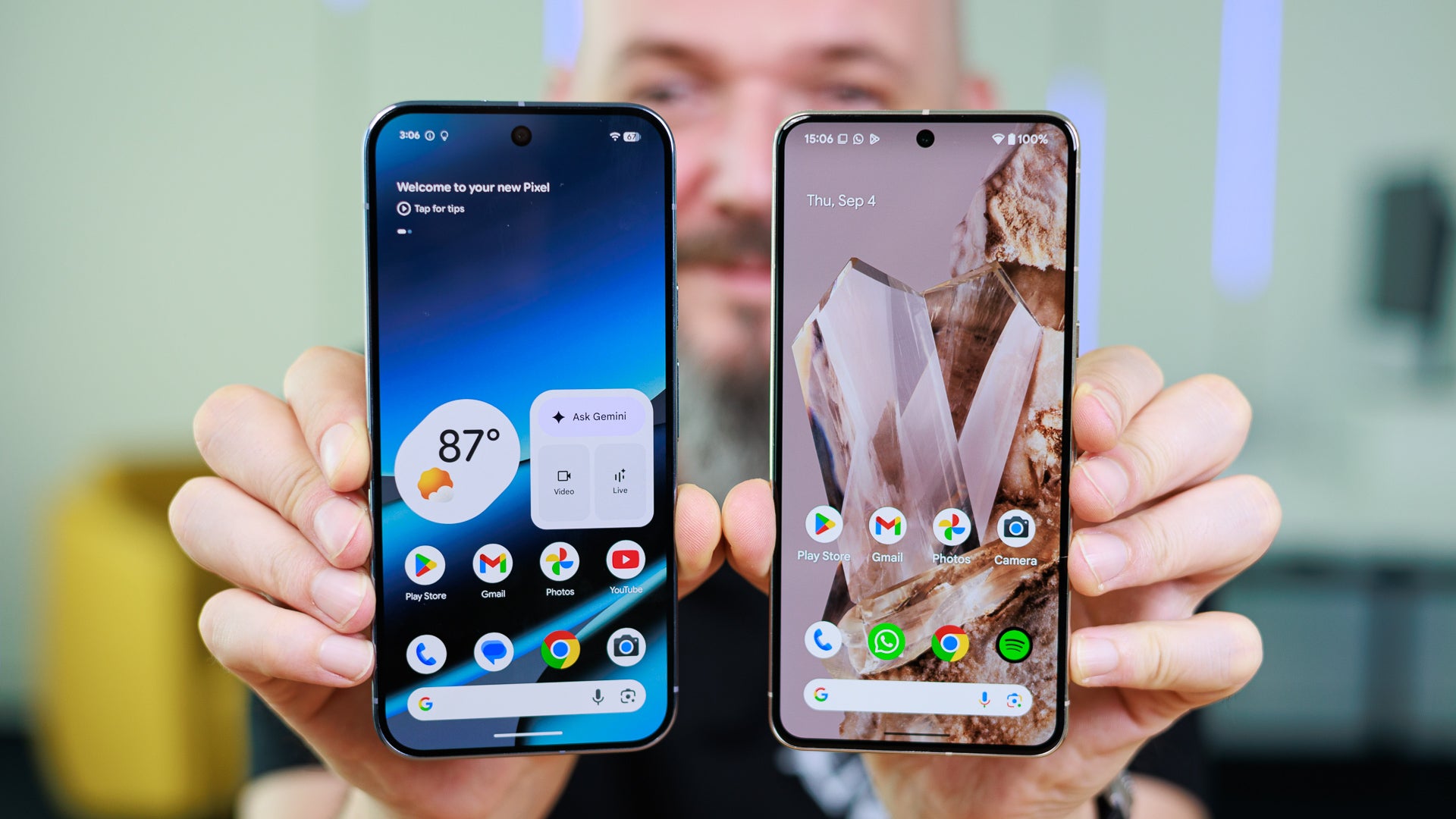
Things look quite clear. The Pixel 10 Pro XL is a pretty decent upgrade, especially compared to the two-generation-old Pixel 8 Pro. The newly announced flagship got a bigger and brighter screen, more RAM, a better chipset, and also a bigger battery with faster charging.
There's a case to be made for keeping the Pixel 8 Pro if you already own one. The differences, albeit there, aren't that huge, and with Google supporting the Pixel 8 Pro for seven long years, there's a lot of life left in this model.
There's a case to be made for keeping the Pixel 8 Pro if you already own one. The differences, albeit there, aren't that huge, and with Google supporting the Pixel 8 Pro for seven long years, there's a lot of life left in this model.
Follow us on Google News


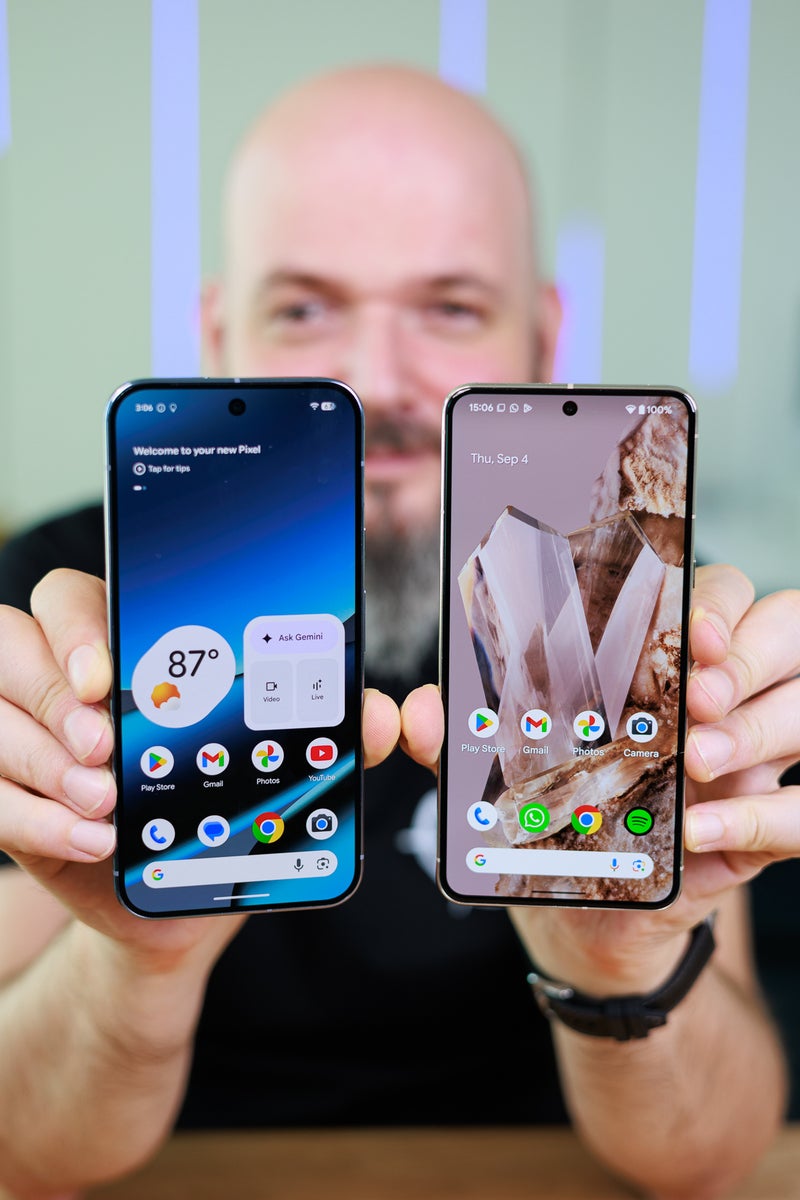
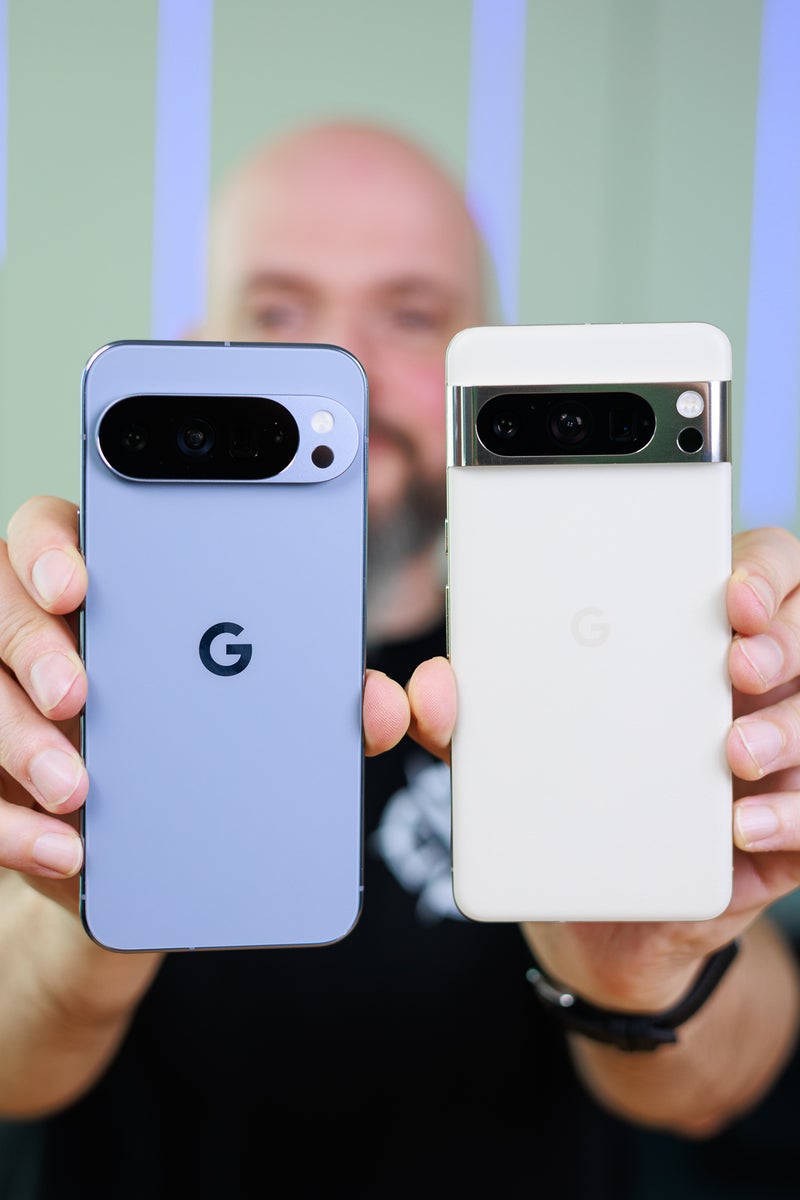
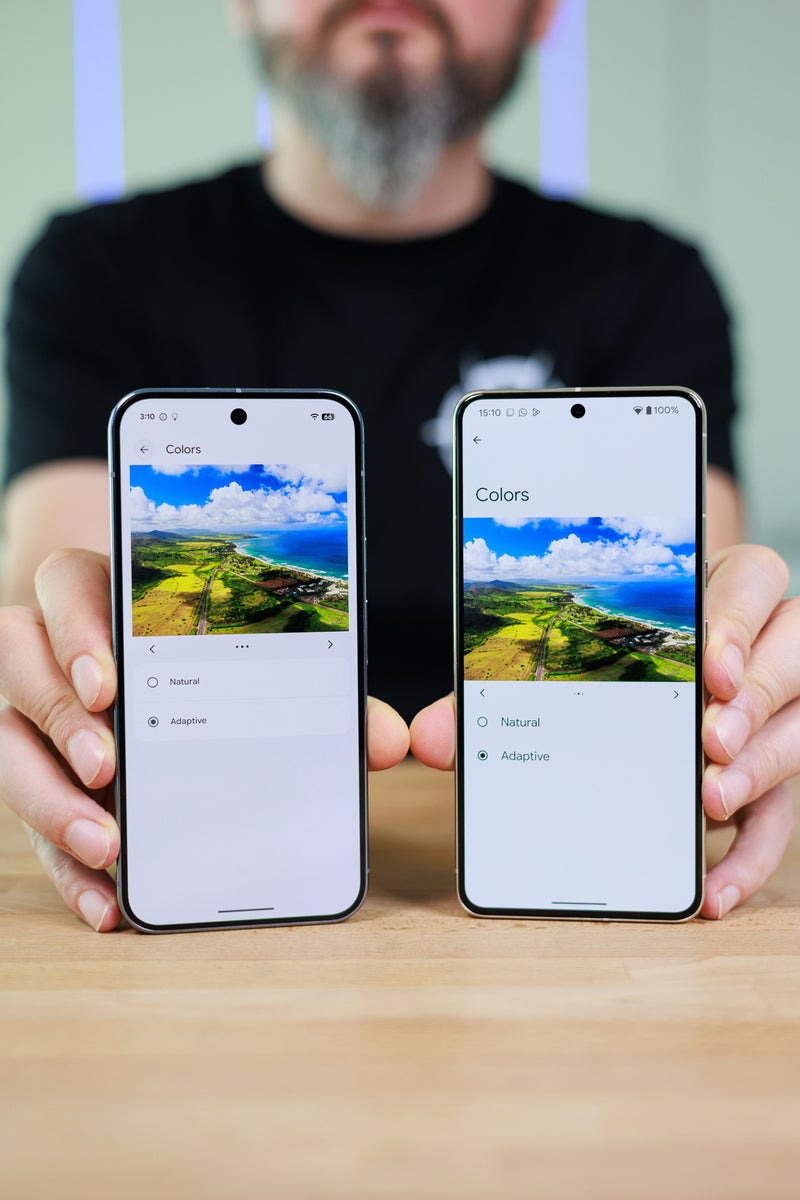
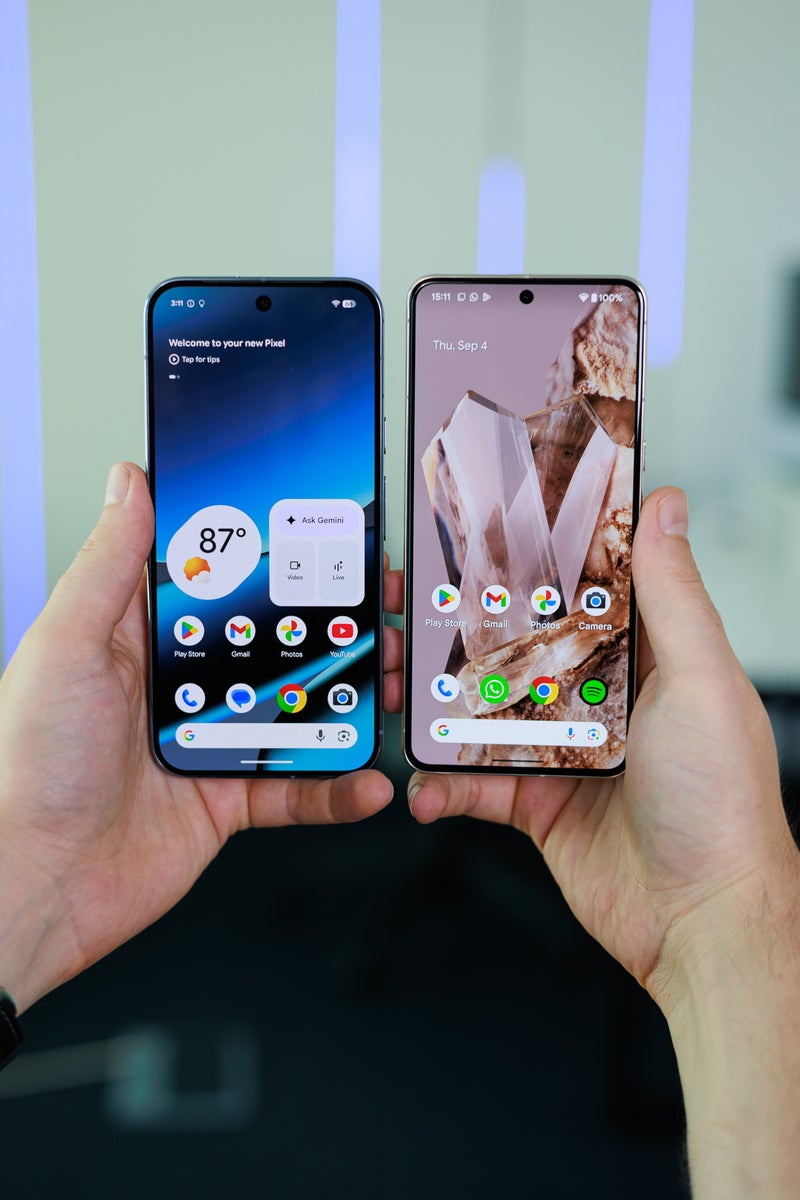
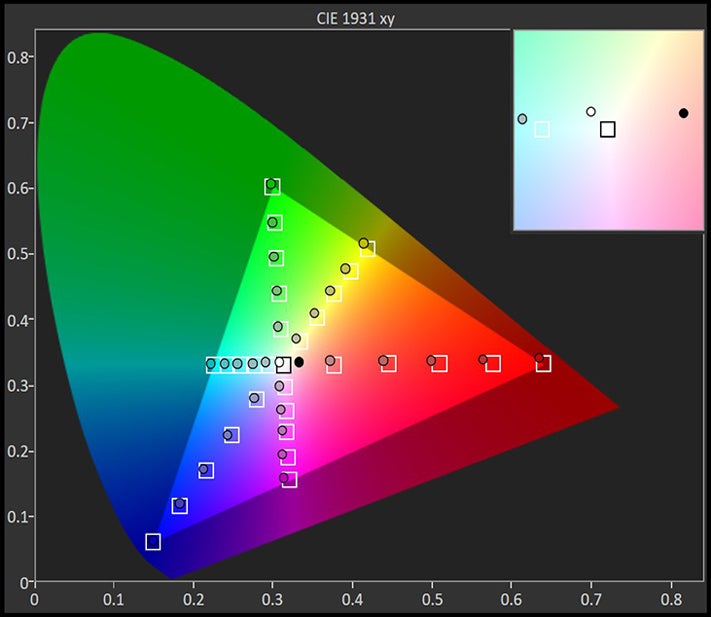
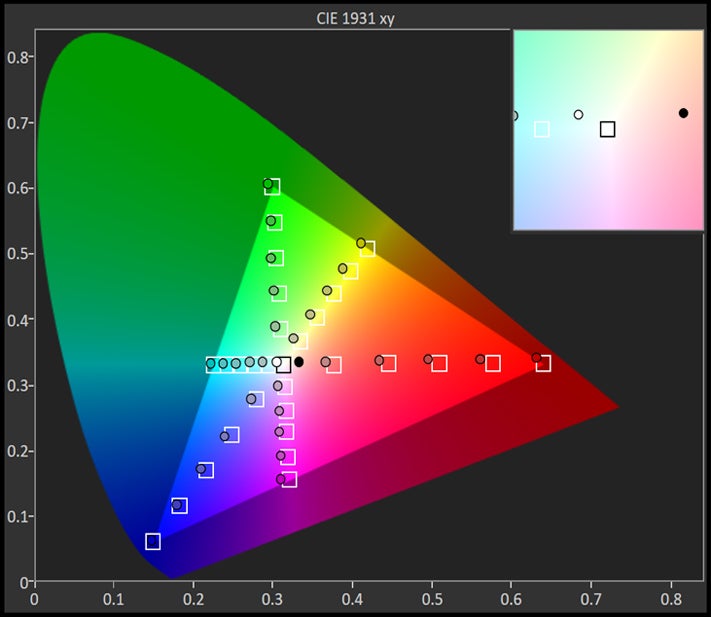




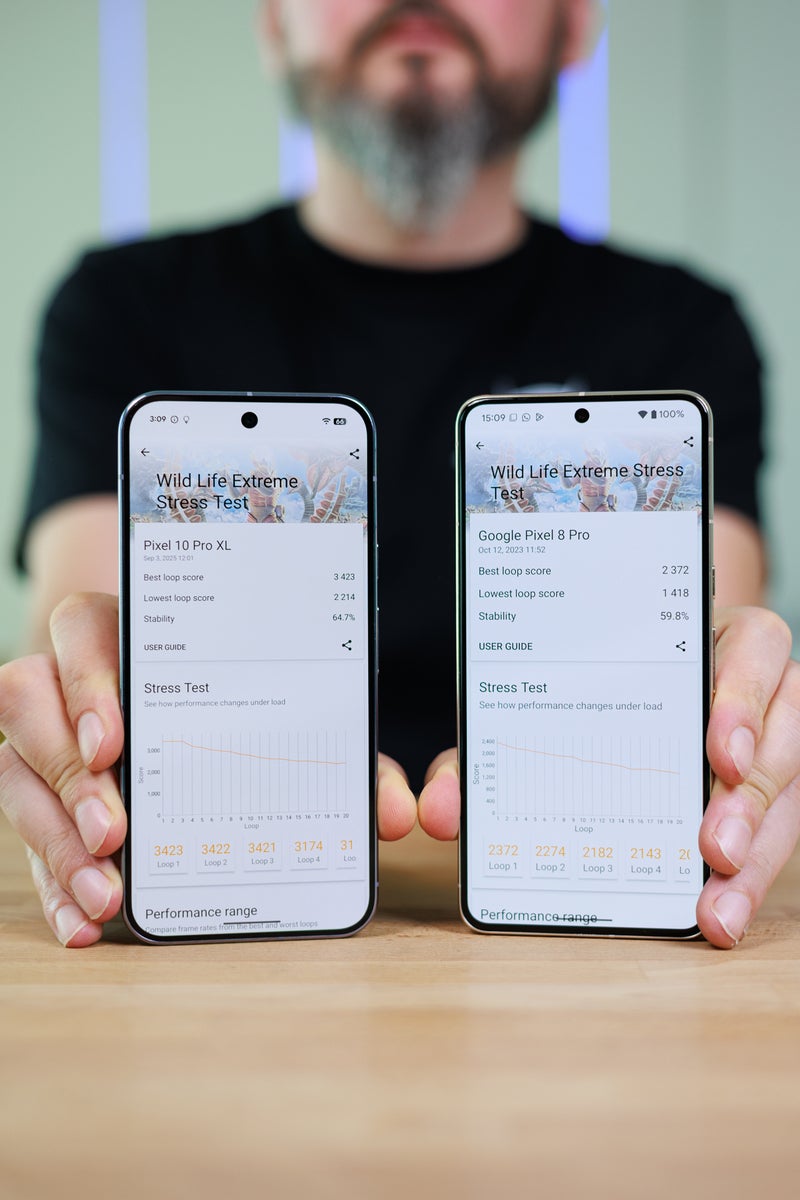
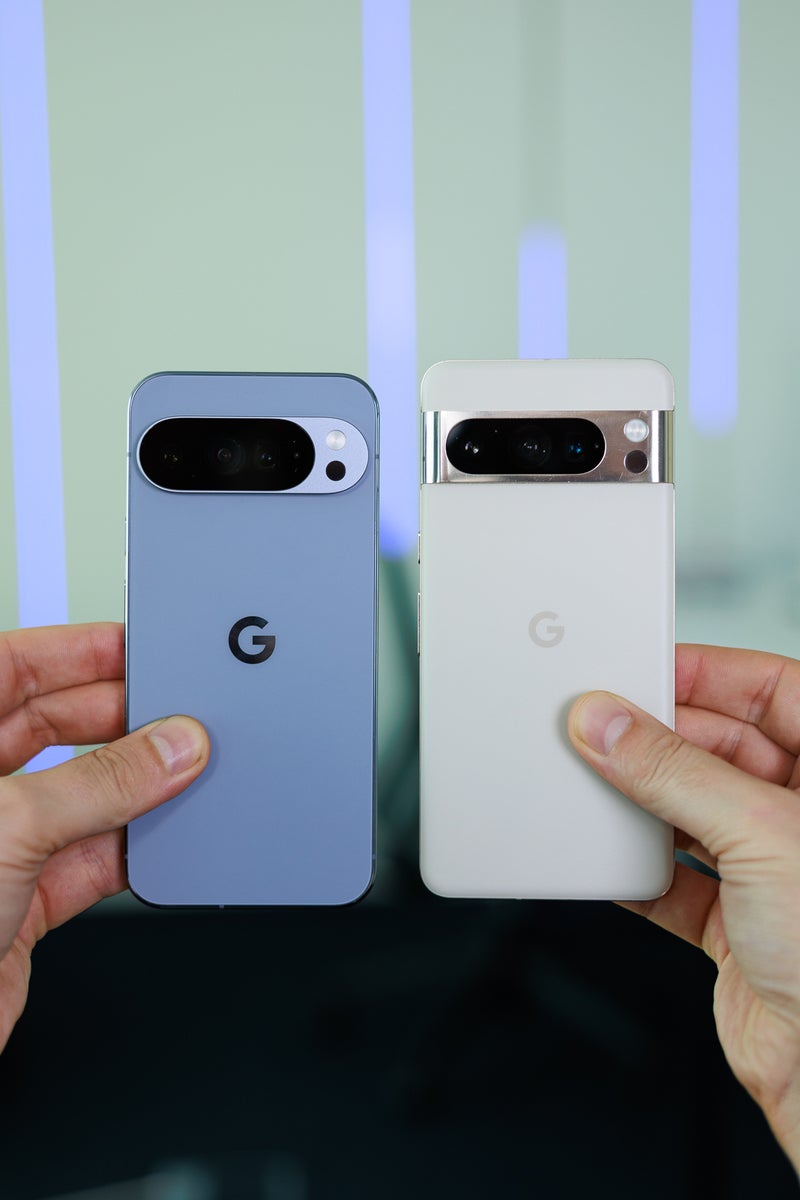
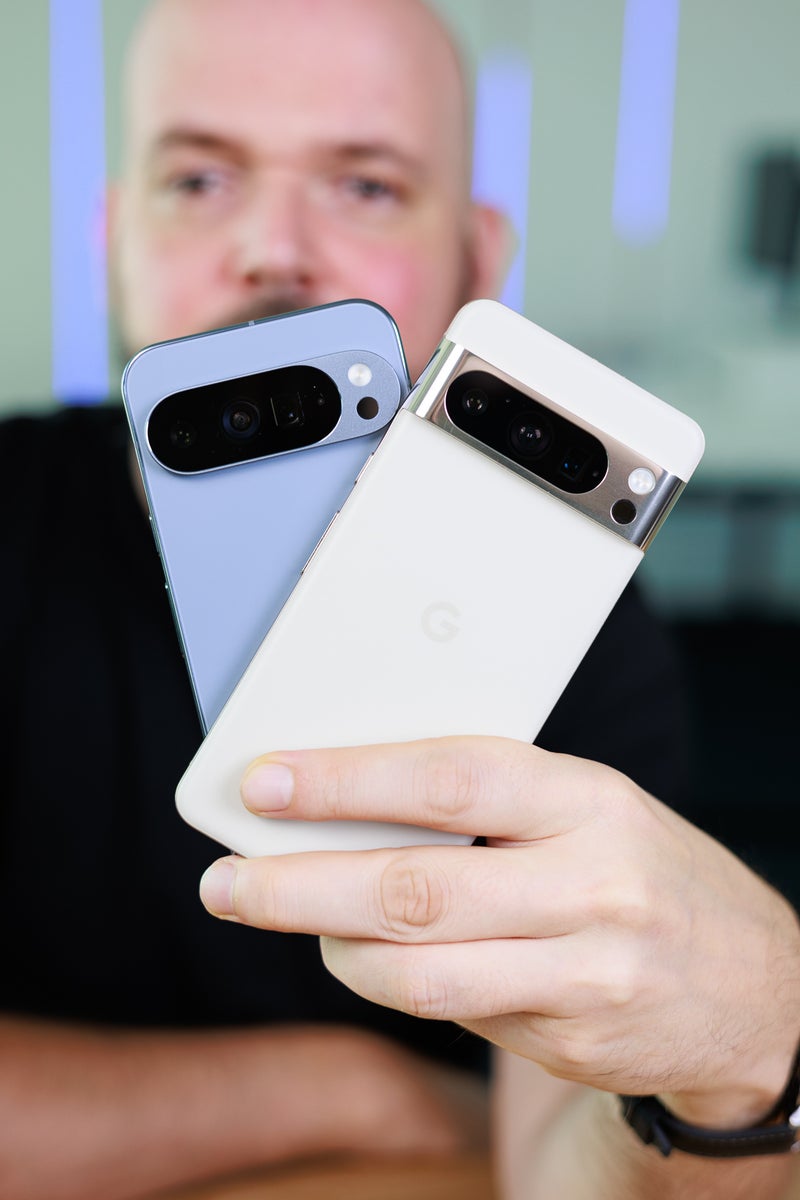
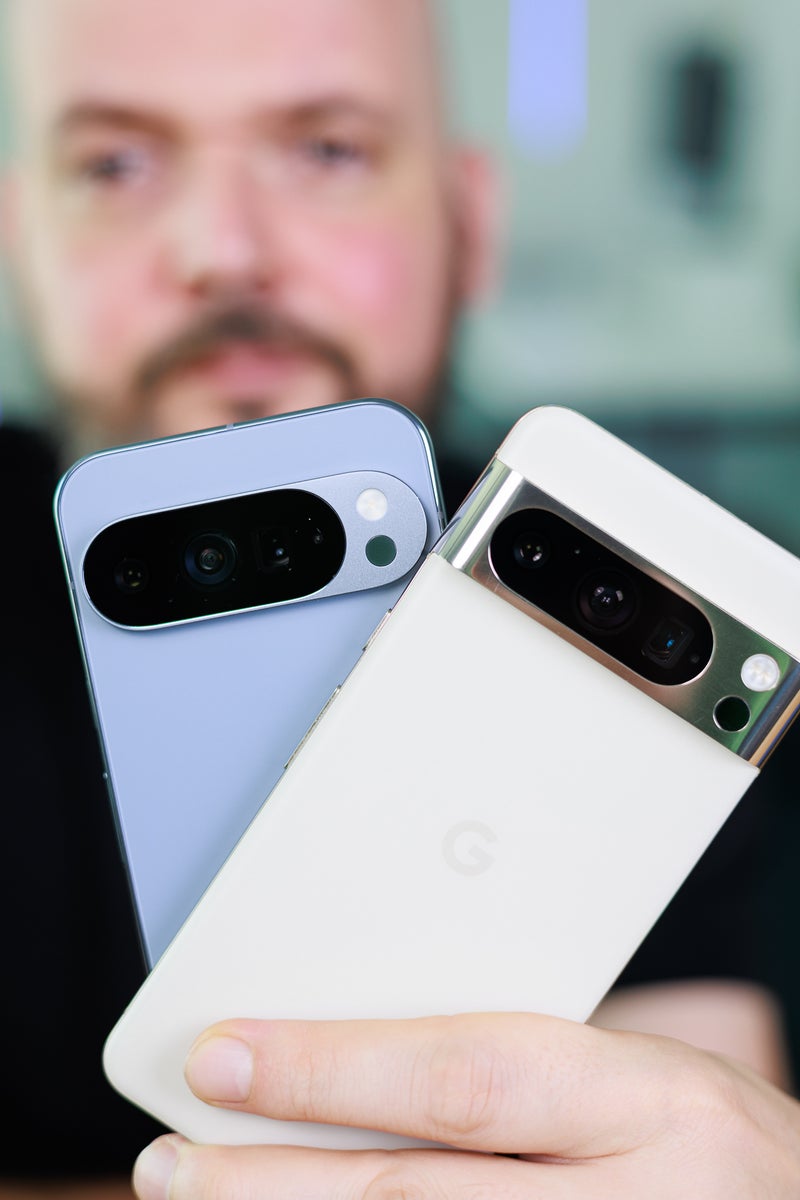
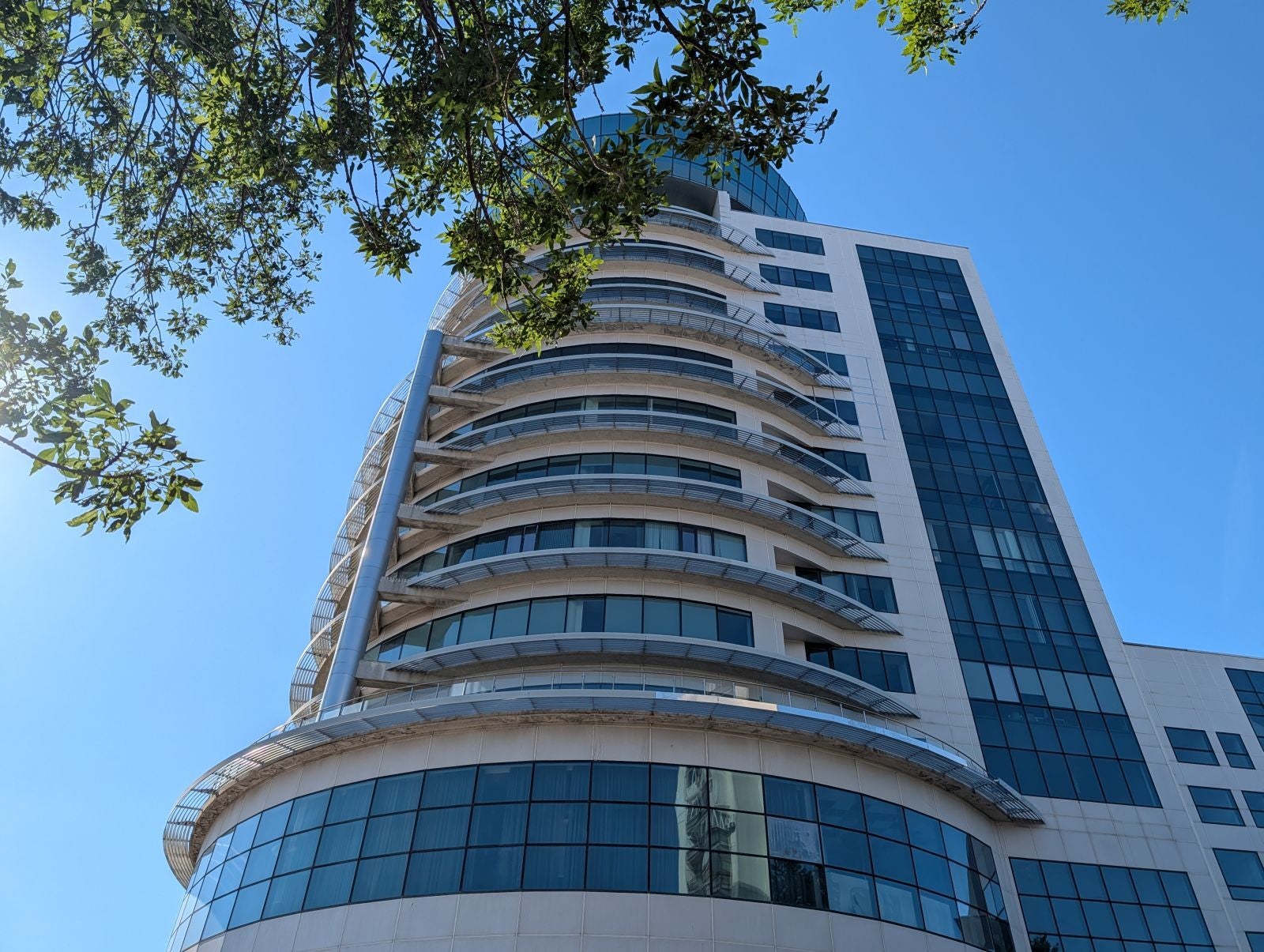
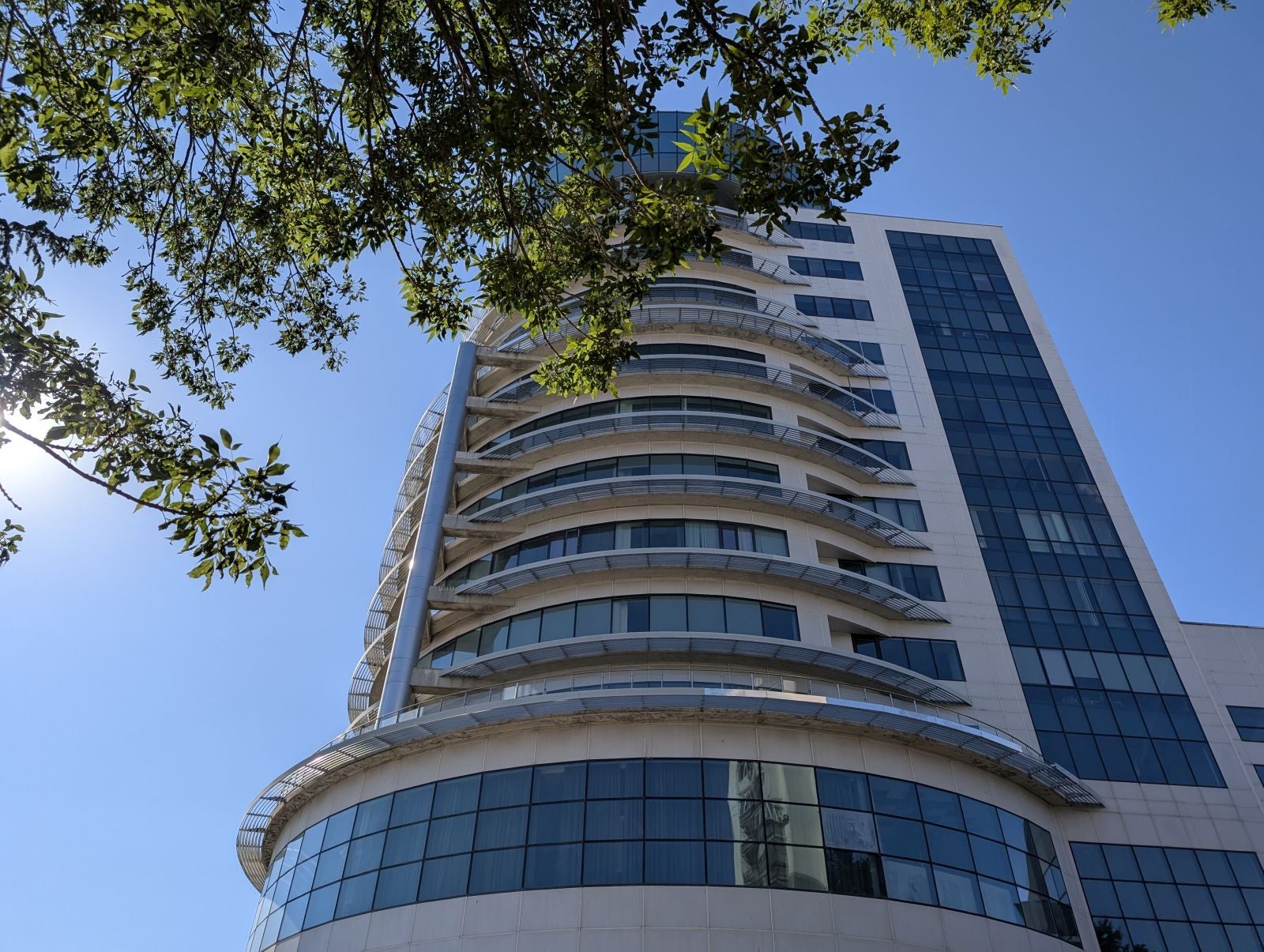




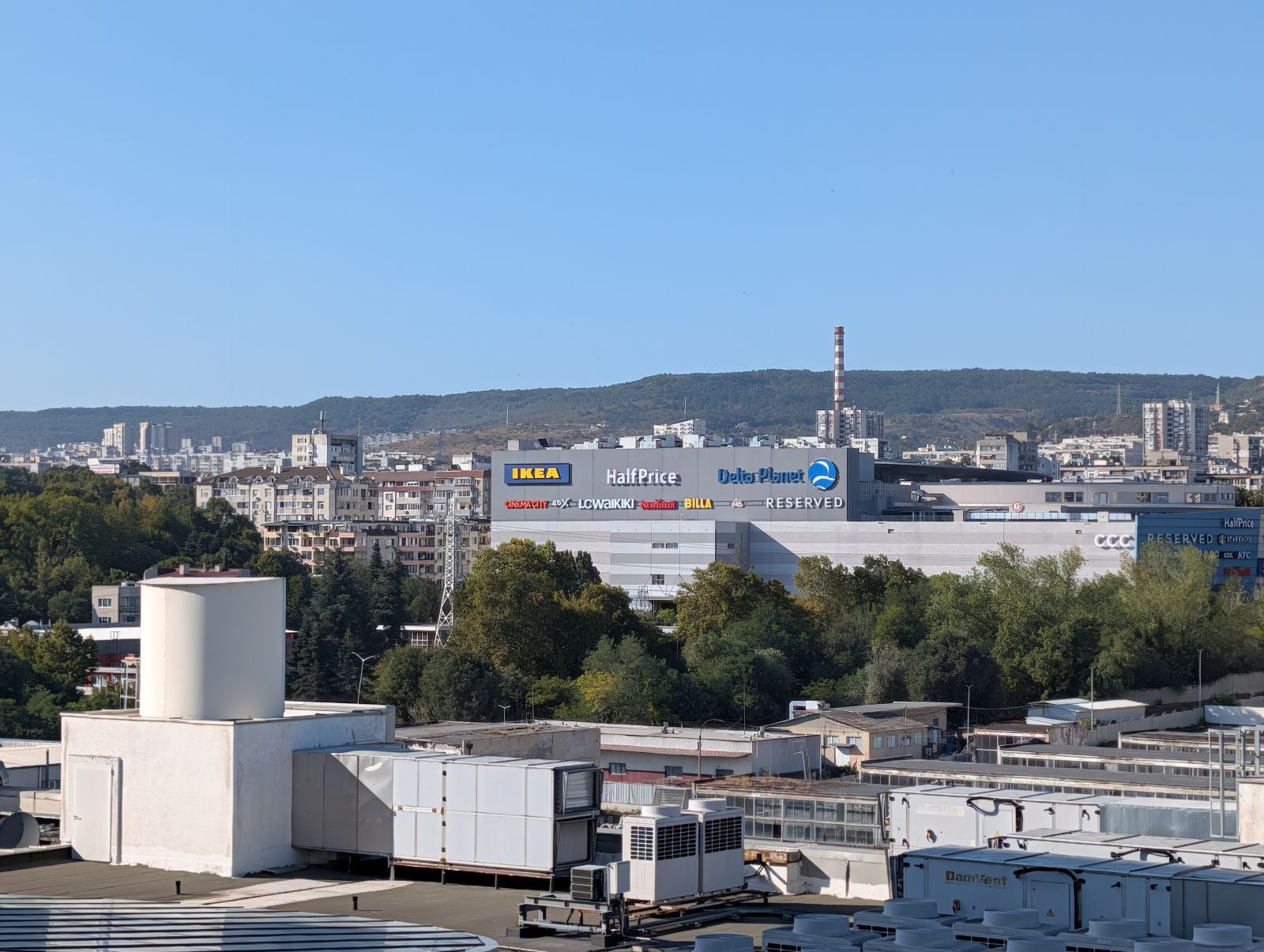
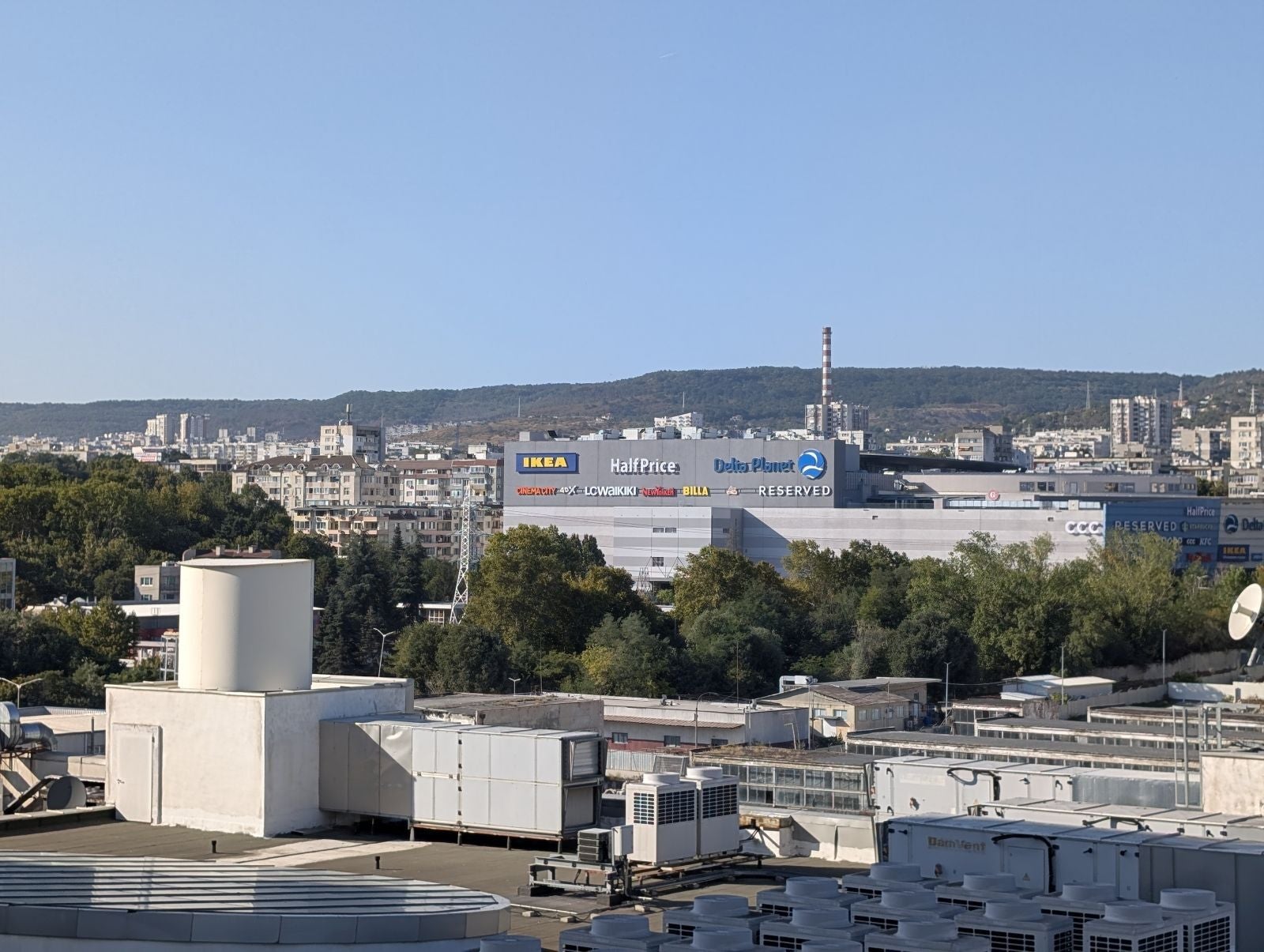




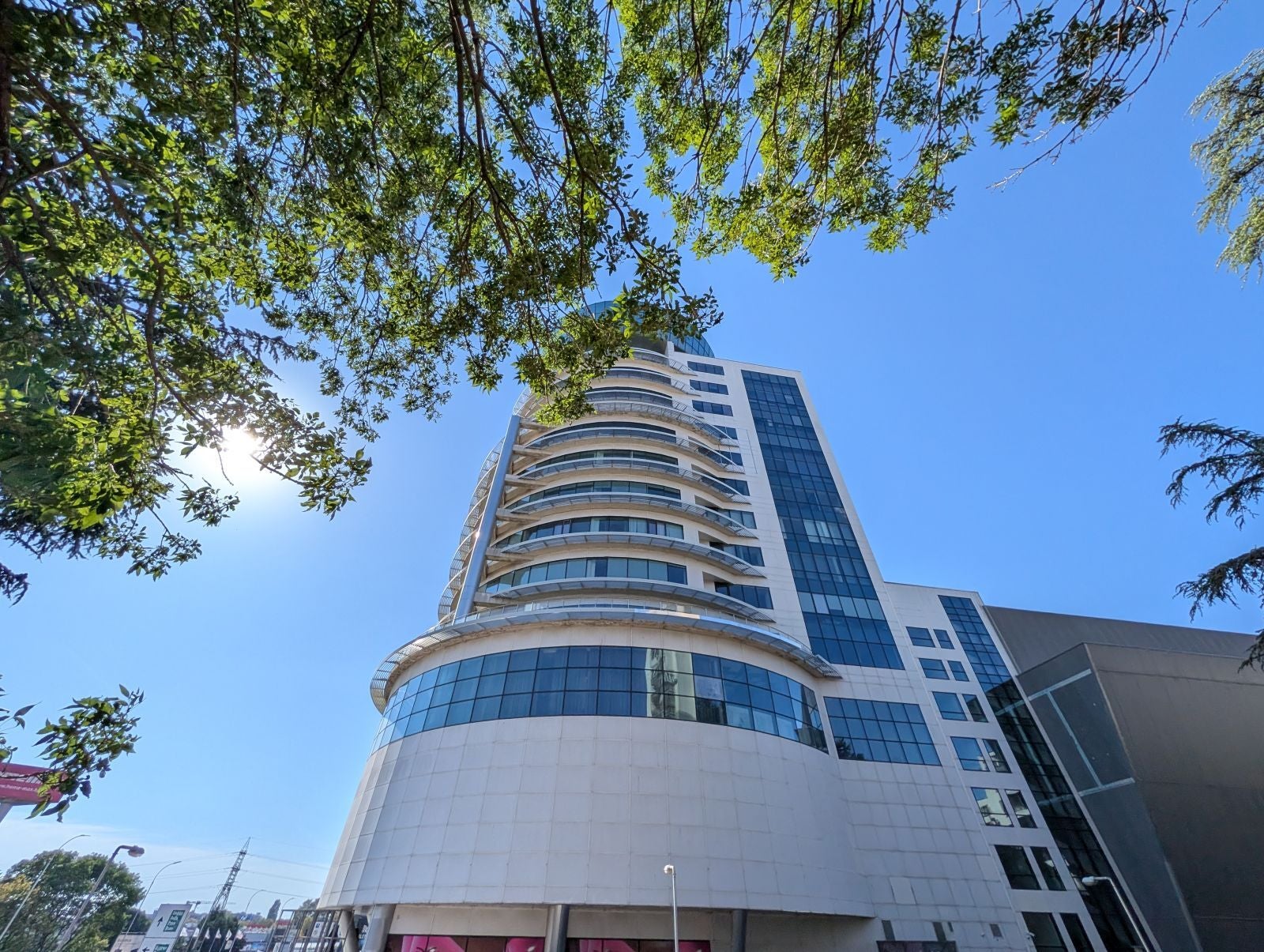
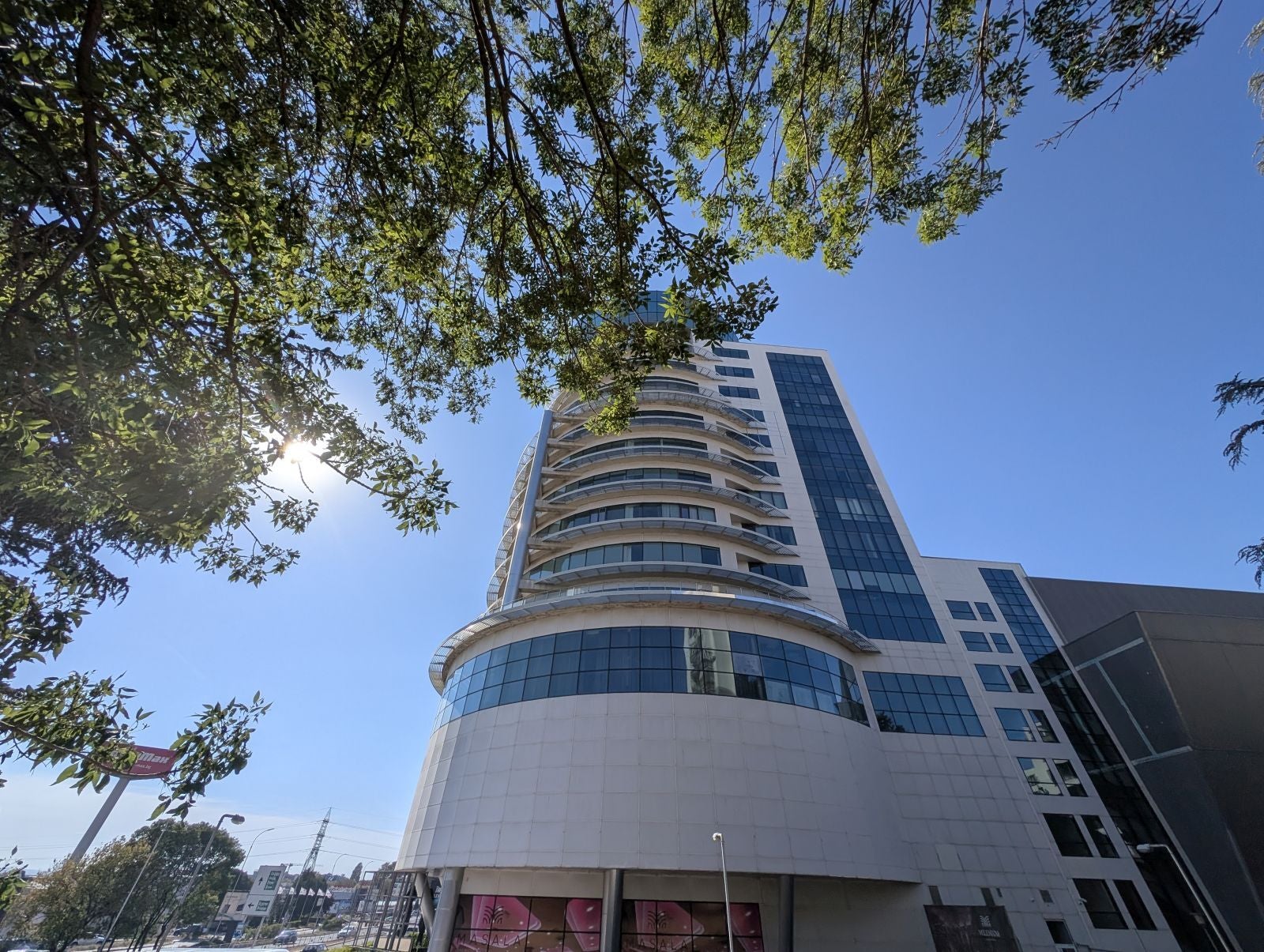


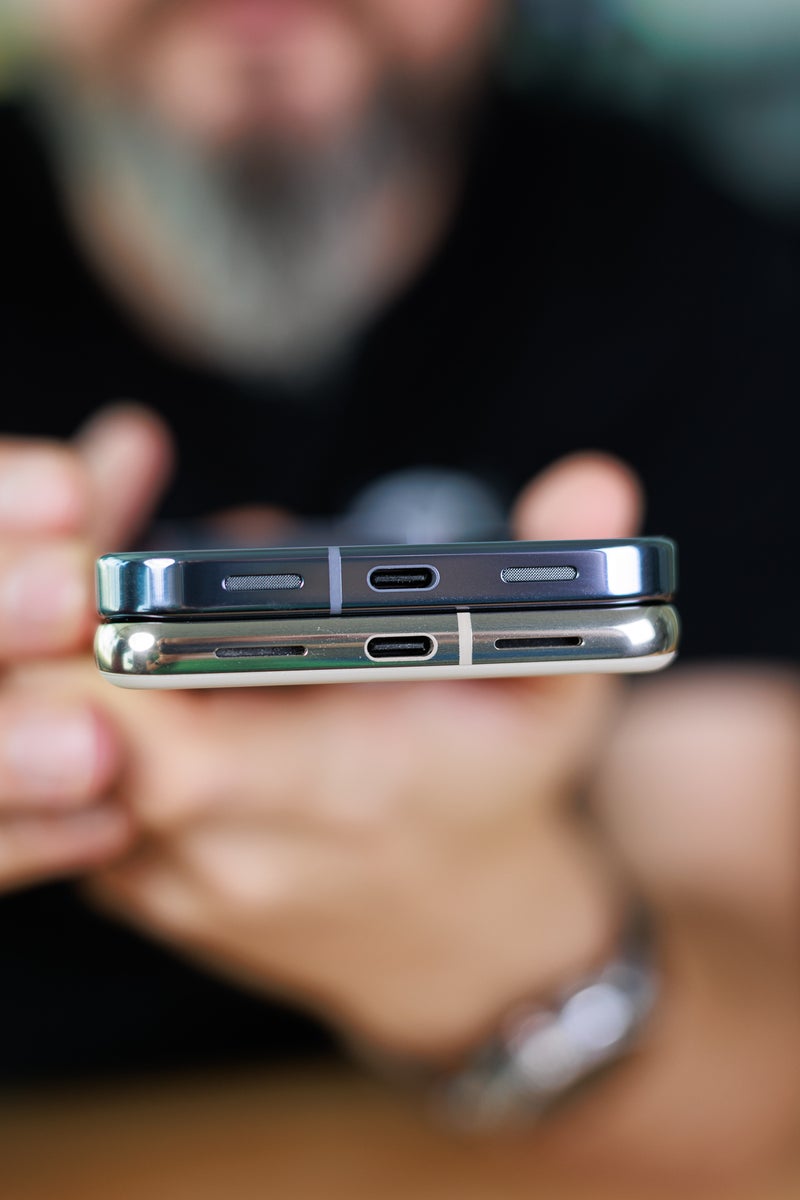
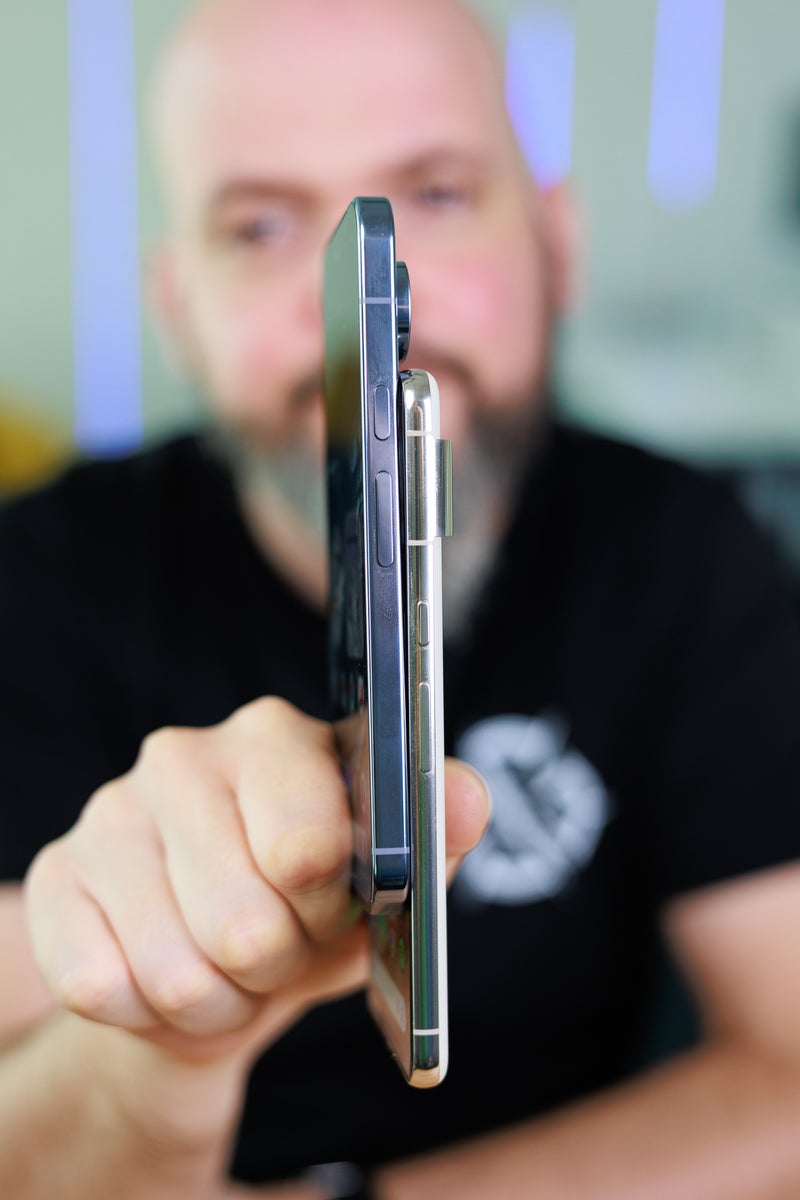




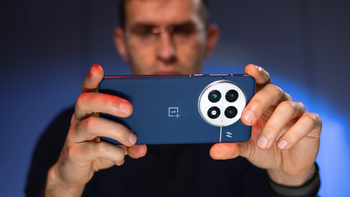

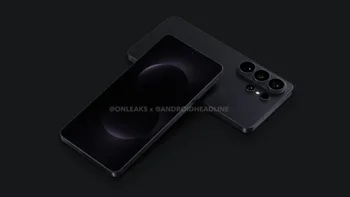
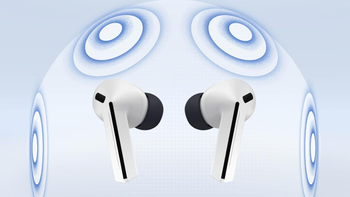





Things that are NOT allowed:
To help keep our community safe and free from spam, we apply temporary limits to newly created accounts: